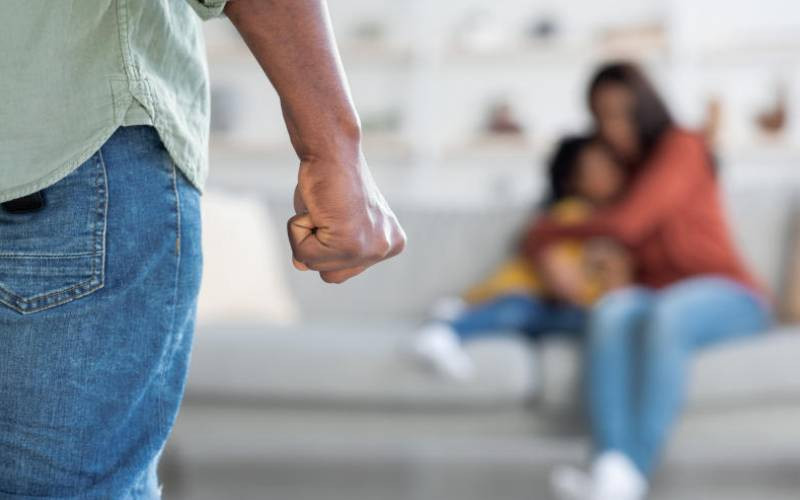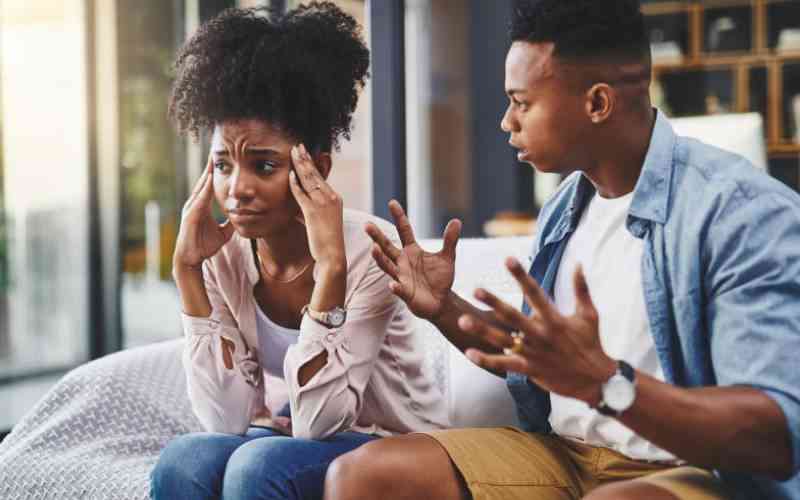
Under the jacaranda tree, Miriam Njeri wraps her leso tighter around her waist. The wind doesn't care that she is in mourning. It whips through the grave with the same reckless breath that once stormed through her daughter's life.
Her daughter, Shiku, was 26, a final-year student at Egerton University. She had dreams of becoming a lawyer, of opening a practice that could offer free legal aid to underprivileged women. But those dreams were buried alongside her after a man decided she didn't have the right to say no.
"I begged her to stay away from him," Miriam says. "But he kept showing up, sweet-talking her, then threatening her. I told her to report him, but she said the police told her to 'go talk it out like adults.' The next month, she was dead."
Shiku is not alone.
In January 2024, 20-year-old university student Rita Waeni was found murdered in a Nairobi Airbnb, her body dismembered and discarded. Just days earlier, social media influencer Starlet Wahu was killed in a similar manner.
Their deaths, along with at least 19 other women that month, ignited nationwide protests, marking a grim start to what would become Kenya's deadliest year for women.
According to the Silencing Women report by Odipo Dev and Africa Uncensored, 170 women were killed in 2024, doubling the annual average from 2016 to 2023. The majority were aged between 18 and 35, with intimate partners responsible for a majority of the murders.

- How can I help my kids build stronger social skills?
- Money talk at the dinner table: Teach children value
- How to prepare your toddler for a new sibling
- Teaching kids to choose the right company early
Keep Reading
Psychologist Dr. Nassim Nkatha calls femicide a symptom of a society that has long normalised female suffering. "Femicide is the violent punctuation of a sentence that begins with control," she says. "It stems from a deep cultural conditioning that teaches women to shrink and men to dominate. When that dynamic is challenged, violence erupts."
Dr. Nkatha insists that the narrative blaming victims is not only false but dangerous. "This idea that victims bring death upon themselves ignores the truth: women are not killed for what they do, but because they exist in a world where men are taught to conquer by all means and their control is absolute."
Michael Mutiso, a Nairobi-based social worker who has worked extensively with violent offenders in prisons, agrees. He attributes many femicide cases to unresolved emotional wounds and societal pressures on men. "From a young age, boys are taught to suppress emotion, to equate vulnerability with weakness. What you get is emotional constipation," he explains. "The rage builds. Add rejection, economic stress, or perceived disrespect, and that anger finds a release point, often in the women closest to them."
"Many of these men were never allowed to fail gently," he reiterates. "They tie their worth to dominance. When women assert independence, it's seen as emasculating. Some lash out to restore their perceived superiority. Others, frankly, derive sadistic satisfaction from watching a woman suffer. That's the darkest corner of this crisis."
Both experts agree: unless society unpacks this toxic socialisation and redefines masculinity, femicide will persist. As Dr. Nkatha puts it, "We're not just raising boys, we're building the next generation of either protectors or perpetrators."
They lived to tell the tale
Faith, 22, had gone on what seemed like a normal date until they ended up at his place. What began as consensual took a dark turn when, mid-act, he started to choke her, ignoring all her pleas to stop. Faith silently prayed for deliverance. When he eventually fell asleep beside her, unconscious of his actions, she quietly fled, her heart pounding, her throat aching, but with her life.
A night out turned dangerous for 27-year-old Jane when the man who offered her a ride home betrayed her trust. Instead of driving her home, he took a detour to a deserted spot and made unwanted sexual demands. When she refused, he assaulted her, hitting her multiple times, before throwing her out of the car and leaving her injured and stranded in the dark. Jane considers herself fortunate to be alive after this near-fatal encounter.
Inside the male mindEdward Kinuthia is a 37-year-old clinical officer. He works six days a week, handles blood pressure, stitches wounds, reassures mothers, and monitors vitals. But no one checks his own.
When asked about the recent wave of femicide, his first instinct is to mourn. "It's painful. No one should have to die," he says. Then he sighs heavily, as if holding something heavier than grief.
"But we also have to talk about what's going on with men."
Edward doesn't excuse the violence, not for a second. He calls it cowardly. Evil. "But violence doesn't start with the murder. It starts way before," he says. "It starts with unprocessed, quiet, generational pain. Then comes entitlement. Then comes rage."
He speaks with the precision of someone trained in medicine and the ache of someone raised in silence. "We were raised to be stoic, unshaken. You're taught not to cry, not to feel, not to fall short. But then life breaks you, and you don't know what to do with that brokenness. So it becomes anger. And sometimes, that anger finds a target."
Edward's voice breaks. "It's not right. But it's real."
He talks about women's empowerment, not as an enemy, but as a trigger. "There's a part of us that feels left behind. Women are growing. They're speaking up, earning more, and leading. But no one stopped to ask, what happens to the men who were raised to think they are only valuable when they provide? What happens when they can't?"
He talks about emasculation. "You pay rent, buy her things, stay loyal. Still, you're told you're not man enough, that she can do better, that you bring nothing to the table. It's like being erased in your own home."
He pauses. "It's not just women who are angry. Men are angry too. Not at women, but at the system, at life, at ourselves. And some of that anger boils over in ugly, irredeemable ways."
Edward blames socialisation: "We were never taught how to lose, how to be vulnerable, how to be equals. We were taught to dominate or disappear. No middle ground."
He recalls the Safisha Rada men's conference hosted by Influencer Abel Mutua in February. "It was the first time I saw grown men sit in a room and open up without shame, not only over women but over their fathers, over joblessness, over failing silently. That space, it felt sacred. We need more of that. Desperately."
He believes toxic feminism is also part of the chaos. "When feminism becomes about humiliating men, reducing them to oppressors, that's not liberation. That's a mirror of patriarchy. Some women use therapy-speak as a weapon. They diagnose you, belittle you, and call it healing."
But he's quick to add: "Still, nothing justifies violence."
Edward dreams of healing. He wants to raise sons who know how to control their anger and daughters who feel safe saying no. But until that world arrives, he asks that we not look away from the pain in men.
"Not all of us are killers," he says. "Some of us are just bleeding inside, quietly. And if we don't allow those wounds to be seen and heard, the silence will fester and become a desperate cry."
 The Standard Group Plc is a multi-media organization with investments in media
platforms spanning newspaper print
operations, television, radio broadcasting, digital and online services. The
Standard Group is recognized as a
leading multi-media house in Kenya with a key influence in matters of national
and international interest.
The Standard Group Plc is a multi-media organization with investments in media
platforms spanning newspaper print
operations, television, radio broadcasting, digital and online services. The
Standard Group is recognized as a
leading multi-media house in Kenya with a key influence in matters of national
and international interest.

